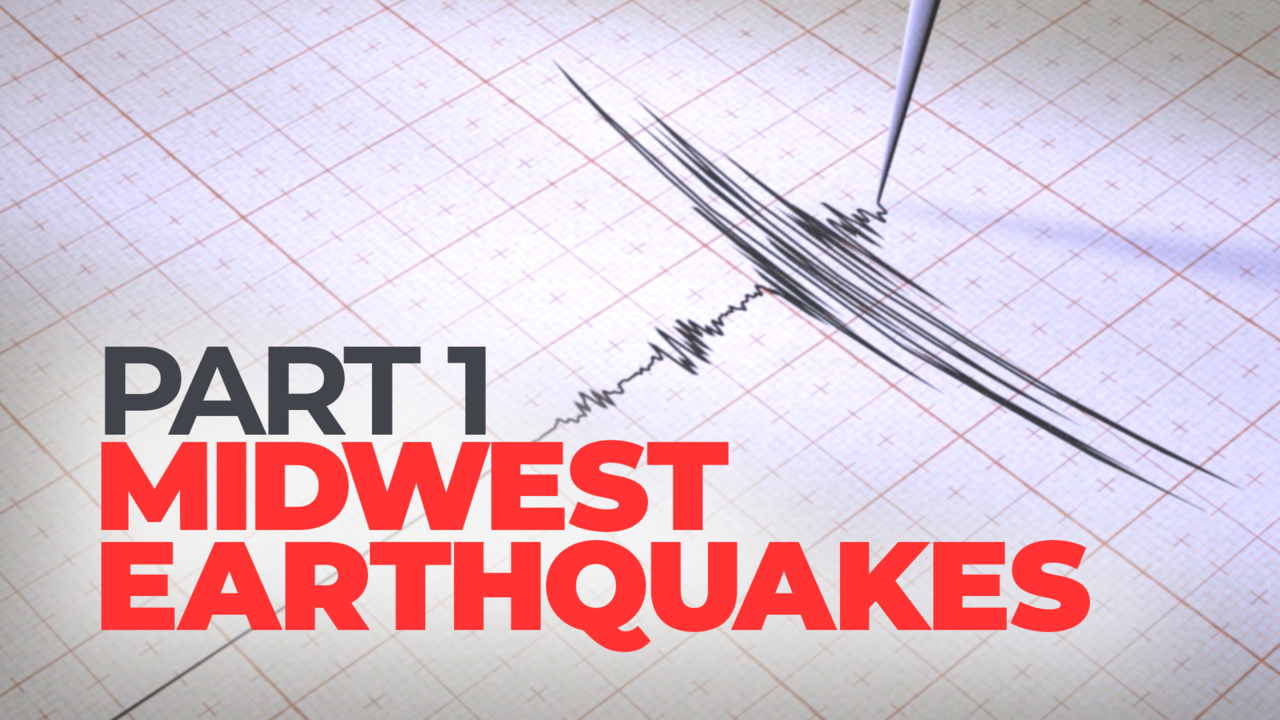
MAHMOUD BENNETT: IT’S A DEADLY THREAT YOU MAY HAVE NEVER HEARD OF.
WILKINSON: “The seismic risk in the central US has been defined by homeland security and FEMA as catastrophic.”
BENNETT: A SERIES OF FAULTS, THAT ONCE ROCKED THE U.S., NOW A FADING MEMORY. IT’S CALLED THE NEW MADRID SEISMIC ZONE. RUNNING UNDER PARTS OF MISSOURI, ARKANSAS AND TENNESSEE.
JAMES M. WILKINSON, JR. | EXECUTIVE DIRECTOR, CUSEC: “We do live in earthquake country. This is not just a California problem or a west coast problem; we have earthquakes throughout the central and eastern U.S.”
BENNETT: JAMES WILKINSON IS THE EXECUTIVE DIRECTOR FOR THE CENTRAL UNITED STATES EARTHQUAKE CONSORTIUM.
WILKINSON: “It’s not going to take a large event 7.0 or bigger to create significant damage and it could still be categorized as catastrophic.”
PRATT: “It’s going to be messy. We’re expecting magnitude 6 to 7 earthquakes occurring in the New Madrid seismic zone there’s about a 7-8% chance one is going to happen in the next 50 years.”
BENNETT: THOMAS PRATT IS A RESEARCH GEOPHYSICIST WITH THE UNITED STATES GEOLOGICAL SURVEY. HE SAYS THE MIDWEST COULD FACE GROUND SHAKING AS SEVERE AS THE NEW MADRID EARTHQUAKES OF 1811 AND 1812.
PRATT: “Those earthquakes were three of the largest earthquakes in the history of the United States, certainly south of Alaska. Shaking was felt throughout the entire eastern United States from Boston all the way down to South Carolina.
BENNETT: COMING UP IN PART TWO OF THIS FOUR PART SERIES, FIND OUT WHY THE MIDWEST IS SO VULNERABLE TO THE NEXT ‘BIG ONE’.
WILKINSON: “Oh it will definitely happen again. There will be larger earthquakes. It’s an active debate how large those earthquakes will be, but there will definitely be larger earthquakes in the future.”










